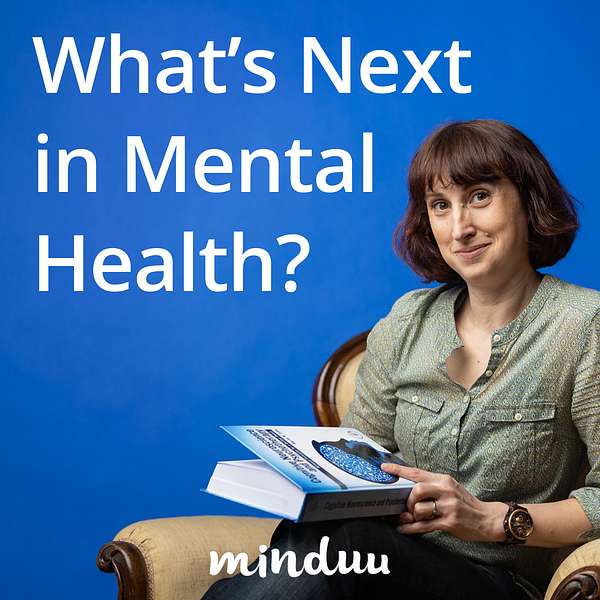
What’s Next in Mental Health?
What’s Next in Mental Health is a podcast for professionals and enthusiasts. It discusses key challenges, future visions and advances in the big picture of mental health. Topics range from neuroscience perspectives to reforming the diagnostic system and the future of psychedelic-assisted therapy. In each episode psychologist and psychotherapist Helena Service talks to an expert about their work and ideas about how to move the field forward.
What’s Next in Mental Health?
The Elephant in the Clinic: The DSM has Fallen Behind. Here is How Psychiatric Diagnosis Might Work in the Future. (with Dr. Colin DeYoung)
The DSM and ICD diagnostic systems are lagging scientific understanding of how mental health and mental illness work. This episode discusses the future of mental health diagnostics with personality neuroscience researcher Dr. Colin DeYoung.
Dr. DeYoung is Associate Professor of Psychology at the University of Minnesota where he runs the DeYoung Personality Lab. He is a member of the Hierarchical Taxonomy of Psychopathology (HiTOP) Consortium, a sizable group of scientists attempting to create an improved diagnostic system.
The DSM “bible of psychiatry” has been seriously criticized, especially, since the development and release of its fifth edition in 2013. At this point, the world’s largest mental health research organization, The National Institute of Mental Health (NIMH), announced it would reorient its funding away from DSM-based research.
As a response to shortcomings in the DSM and ICD, the HiTOP consortium was formed in 2015. It is a grassroots effort to create a data-driven diagnostic system based on statistical analysis of how different mental health symptoms occur together in practice. HiTOP has been accumulating evidence of its utility.
This episode is the first part of the conversation with Dr. DeYoung. In it we discuss how the DSM-V and ICD-11 systems have fallen behind progress, how HiTOP works, and how it relates to both the DSM and ICD systems and the Research Domain Criteria framework launched by the NIMH. We also touch on the power politics involved between different medical fields and how HiTOP becoming a clinical reality could unfold.
Episode timestamps:
Discontent with the DSM and ICD systems (0:00)
The gap between science and practice in psychiatry vs. other fields of medicine (4:40)
Problems with viewing psychopathology as categorical disorders (9.00)
NIMH launched RDoC as an alternative framework of studying brain mechanisms (18:35)
HiTOP vs DSM and ICD vs RDoC (21:15)
How helpful is defining mental disorders as brain disease? (28:05)
HiTOP as a statistical model for how symptoms co-occur (32:40)
Clinicians operating in practice (46:05)
Power politics between different medical fields (52:20)
The path forward to implementation and official recognition (1:00:33)